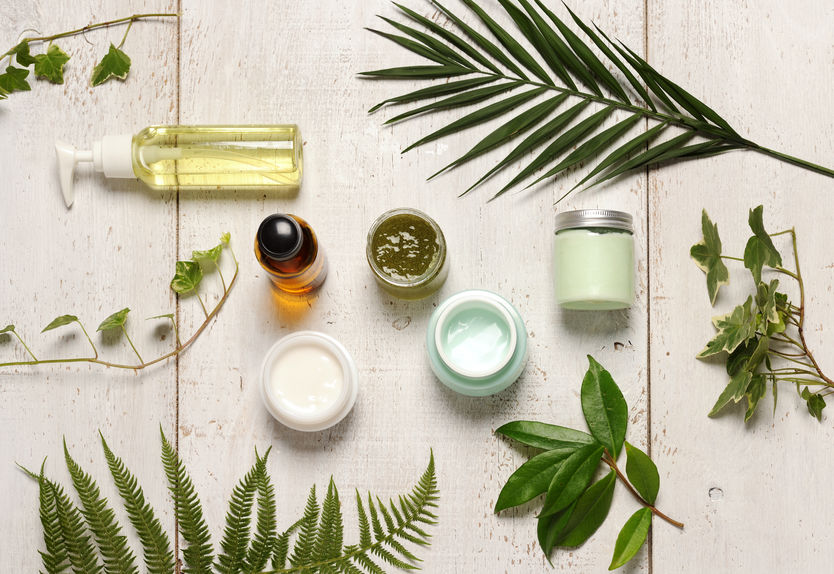Embracing Natural Skincare: Benefits, Cautions, and Expert Insights

As the world becomes more conscious of the ingredients we expose ourselves to, the popularity of natural skincare soars. But with an abundance of options on the shelves, it’s essential to understand the potential benefits and downsides of transitioning from conventional, chemical-focused products. In this article, we delve into the difference between natural and chemical skincare, offer tips on how to use and store natural products, and explore ways to select the best options for your specific skin type.
Natural vs. Chemical Skincare: Decoding the Difference
-
Natural Skincare: Products derived from plant-based ingredients, minerals, and other naturally occurring substances. They often prioritize organic, sustainable sourcing and avoid harsh synthetic chemicals like parabens, sulfates, and artificial fragrances. Natural Heroes, a Dutch brand, exemplifies this philosophy with their line of deodorants, carrier oils, and skincare essentials crafted from pure, natural ingredients.
-
Chemical Skincare: Products relying on synthetically derived ingredients formulated in a lab. These can offer targeted solutions, like specific active ingredients for acne treatment or hyperpigmentation. However, some chemicals may irritate sensitive skin or harbor potential long-term health concerns.
The Pros and Cons: A Balanced Perspective
Pros of Natural Skincare:
- Gentler on Skin: Often less irritating for sensitive skin types due to the absence of harsh chemicals.
- Eco-Friendly: Typically utilizes sustainable ingredients and production methods, minimizing environmental impact.
- Nourishing Benefits: Natural ingredients like botanical extracts and essential oils offer antioxidant, anti-inflammatory, and hydrating properties that support skin health.
Cons of Natural Skincare
- Can Be Less Potent: Might not offer the same intensity of results as some chemical-based products for specific skin concerns.
- Shorter shelf life: The lack of synthetic preservatives can make natural skincare products more prone to spoilage and expiration.
- Potential for Allergies: While natural, some plant-based ingredients can trigger allergies in certain individuals.
Choosing Natural Skincare for Your Skin Type
- Dry Skin: Look for hydrating ingredients like shea butter, hyaluronic acid, and essential oils like lavender and chamomile. Natural Heroes’ range of carrier oils can be added to your favorite creams and serums for an extra moisture boost.
- Oily/Acne-Prone Skin: Seek tea tree oil, aloe vera, and witch hazel which have astringent and antibacterial properties. Natural Heroes’ witch hazel water is a gentle and effective option for clarifying skin.
- Sensitive Skin: Opt for calming ingredients like aloe vera, chamomile, and calendula. Patch test new products on a small area before full-face application, and steer clear of known irritants.
- Mature Skin: Choose antioxidant-rich ingredients like vitamin C, green tea extract, and rosehip oil to fight free radicals and support skin elasticity.
Tips for Using and Storing Natural Skincare
- Patch Test: Always patch test new products on a small area of skin before incorporating them fully into your routine.
- Storage: Store natural products in cool, dark places away from direct sunlight to preserve their active ingredients.
- Expiration Dates: Pay close attention to expiration dates, as natural skincare tends to have a shorter shelf life than conventional products.
Choosing natural skincare is a personal decision. It offers potential benefits for both your skin and the environment, but it’s essential to approach it with realistic expectations. By selecting high-quality products like those from Natural Heroes, understanding your skin’s unique needs, and following proper storage guidelines, you can maximize the benefits of this holistic approach to skincare.
Disclaimer: Always consult with a dermatologist or skincare professional for personalized advice regarding significant skin concerns or transitioning to a new skincare routine.
Natural Heroes: Embracing Sustainability
Beyond just offering natural ingredients, Natural Heroes takes sustainability a step further. They emphasize responsible sourcing practices, favoring organic and ethically sourced ingredients whenever possible. Additionally, they strive to minimize their environmental impact through:
- Recyclable packaging: Their packaging is crafted from recycled materials whenever feasible, demonstrating their commitment to reducing their carbon footprint.
- Transparent production: They prioritize transparency with their customers, readily providing information about the origin and quality of their ingredients on their website (https://www.naturalheroes.nl/).
Exploring the Natural Heroes Product Range
Natural Heroes offers a diverse range of products to cater to various skincare needs:
- Deodorants: Crafted with natural ingredients like baking soda, arrowroot powder, and essential oils, their deodorants effectively neutralize odor without harsh chemicals or aluminum.
- Carrier Oils: A selection of unrefined carrier oils like jojoba oil, argan oil, and sweet almond oil offers a versatile base for DIY skincare creations or can be directly applied for targeted concerns like dryness or irritation.
- Witch Hazel: Their witch hazel water is a natural astringent, ideal for gently cleansing and clarifying oily and acne-prone skin.
- Apple Cider Vinegar: Unfiltered apple cider vinegar “with the mother” is offered for those seeking its potential benefits in skincare routines.
Choosing Natural Heroes for Your Skincare Journey
Whether you’re seeking gentle yet effective skincare solutions or prioritizing sustainable practices, Natural Heroes offers a compelling option. Their commitment to natural ingredients, transparency, and eco-friendly practices makes them a brand worth considering for your skincare journey. Remember, while this article highlights Natural Heroes as an example, it’s essential to conduct your own research and choose products that align with your individual needs and preferences. Always consult a doctor or dermatologist for personalized skincare advice, especially regarding any underlying skin concerns.














